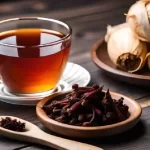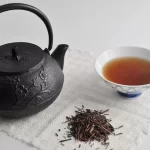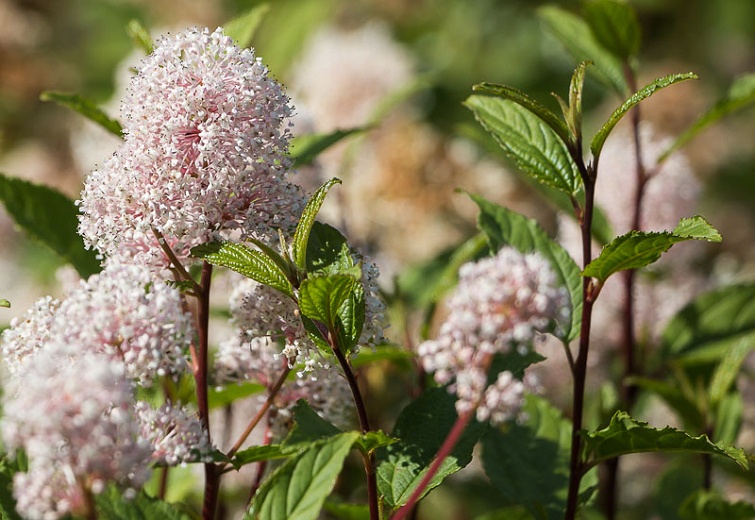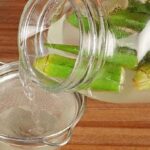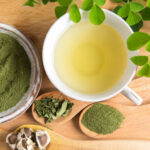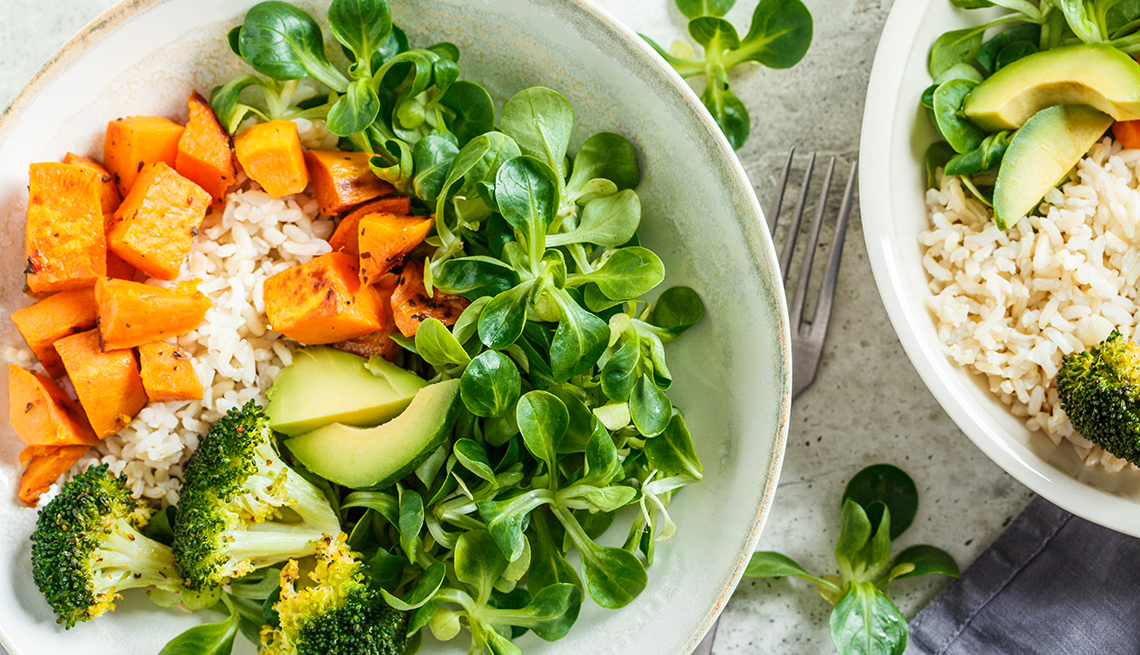Benefits Of Drinking Cinnamon Tea
The Significance of Cinnamon
Getting to know various benefits of drinking cinnamon tea is quite imperative. Sprinkled on cookies, rolled into breakfast buns, and an essential part of culinary cuisine, cinnamon is one of the most significant spices in the world.
Often associated with holiday baking, this sweet and aromatic spice is actually the second most popular spice globally, right after black pepper.
For thousands of years, cinnamon has been a staple across various cultures—from the kitchens of Ancient Egypt to the practices of Medieval European witchcraft, and even in traditional Ayurvedic medicine.
Cinnamon’s sweet, aromatic flavor and delicate spiciness come with a rich history and modern-day traditions, especially during the holidays.
Beyond its delightful taste and aroma, cinnamon is packed with health benefits. This prized spice is truly remarkable, as you’ll discover when we explore the benefits of cinnamon tea, perfect for a cozy, relaxing experience.
What is Cinnamon Tea?
Cinnamon tea is an herbal infusion made by steeping cinnamon bark in hot water. This tea can be made from the bark of the cinnamon tree, which can also be ground into a powder.
For many, cinnamon has a sweet, earthy flavor with a hint of woodiness. It has a beautiful aroma often associated with Christmas in the United States. When brewed, cinnamon tea produces a golden color and provides a warming effect that spreads throughout the body.
The cinnamon plant is native to Sri Lanka, where it is known as Ceylon cinnamon or true cinnamon. Another variety, Saigon cinnamon, comes from Vietnam. While these types are similar, Ceylon cinnamon is considered more desirable in the Western world and is harder to find.
Cinnamon bark is harvested from the inner part of the tree, which curls into sticks as it dries. These sticks can be soaked in water to make tea, or they can be crushed into a powder or turned into an extract.
Cinnamon tea can also be made by combining cinnamon with black tea leaves for a caffeinated version, or by blending it with other spices. It is common to find cinnamon as a flavoring in other teas, such as chai or ginger tea.
The Benefits of Cinnamon Tea
Warming every corner of your being, cinnamon tea is brimming with health benefits. This tea, rich in goodness, has played an essential role in Chinese herbalism for centuries.
Cinnamon is believed to address a wide range of health issues, supporting healthy circulation, boosting the respiratory system, and even offering effective pain management. Let’s delve into the amazing benefits that a cup of cinnamon tea can bring:
1) Reduce the Risk of Heart Disease
Keep your heart strong and reduce the risk of heart disease by incorporating the humble and heavenly cinnamon stick into your tea. This resilient bark has been shown to positively impact overall health, specifically by lowering cholesterol levels and blood pressure.
Cinnamon lowers LDL cholesterol (the bad kind) and boosts HDL cholesterol (the good kind), thereby reducing the risk of heart attack, stroke, or heart disease.
2) Lowers Blood Sugar Levels
For those who need to manage blood sugar levels due to health conditions like type 2 diabetes, cinnamon tea can be a beneficial daily remedy. Studies have found that regular consumption of cinnamon supplements can increase insulin sensitivity for at least 12 hours.
This results in lower blood sugar levels, better diabetes management, and a reduced risk of complications.
3) Provides a Wealth of Antioxidants
Cinnamon is celebrated in Ayurvedic medicine, and it’s no surprise that it boasts a high antioxidant content. This unassuming strip of bark or pinch of powder is packed with polyphenols, potent antioxidants that help combat oxidation and fend off free radicals.
Free radicals can cause significant harm to the body, leading to premature aging and long-term diseases. Among the spices studied, cinnamon ranks as one of the top sources of polyphenols.
4) Enhances Brain Function
Cinnamon tea can also contribute to keeping your mind sharp. It helps protect against neurological issues like Alzheimer’s and Parkinson’s diseases.
Studies have found that Ceylon cinnamon can inhibit the formation of tau proteins, which can disrupt chemical signals in the brain and contribute to these conditions. By preventing these proteins from appearing, cinnamon supports better brain health and function.
5) Supports Weight Loss
Despite its association with sweet treats, cinnamon can be a valuable ally in weight management. Cinnamon tea can help in the fight against obesity and aid in weight loss, particularly around the waist.
Studies have shown that cinnamon can assist in fat loss, though it’s important to note that these studies were conducted under strict calorie control, so the results may vary in everyday life.
6) Calms Stomach Issues
Give your digestive system the soothing touch it needs with cinnamon. This gentle spice stimulates digestive juices, promoting a well-tuned digestive flow. Regular consumption of cinnamon supplements is associated with reduced stomach issues such as bloating, gas, constipation, and inflammation.
Whether you suffer from IBS or simply want to improve digestive health, a comforting cup of cinnamon tea provides instant relief.
7) Powerful Anti-inflammatory Properties
Studies have identified Ceylon cinnamon as a potent food source with remarkably high anti-inflammatory properties. By reducing inflammation, cinnamon can benefit the body in numerous ways. It lowers the risk of conditions like blood clots and chronic diseases, while also alleviating pain and swelling.
8) Improves the Immune System
Boost your immune system’s defenses by incorporating cinnamon tea into your routine. This sweet-scented spice is adept at combating pathogens, effectively reducing the growth and spread of bacteria ranging from salmonella to the flu.
Regular consumption of cinnamon tea supports overall immune health, helping your body fend off infections.
9) Lowers Risk of Cancer
Cancer prevention is a significant health concern, and cinnamon has shown promising results in reducing its risk. Studies indicate that cinnamon aids in inhibiting blood vessel growth within tumors, which can effectively suppress tumor growth.
Although most evidence comes from laboratory and animal studies, cinnamon’s potential as a cancer-fighting agent is compelling.
10) Works as an Antibacterial & Antifungal
Cinnamon contains cinnamaldehyde, a compound known for its antibacterial and antifungal properties.
It actively fights against various bacteria and fungi, making it a valuable ingredient in combating infections. Cinnamon oil and extracts are often used in remedies for respiratory tract infections, effectively reducing bad breath and the risk of tooth decay.
11) Reduces Cold Symptoms
With its antiviral, antifungal, antibacterial, and antiseptic properties, cinnamon tea is an effective remedy for alleviating cold and flu symptoms. Its antioxidant activity neutralizes pathogens, boosts immunity, and accelerates recovery time.
Additionally, cinnamon’s warming nature provides soothing relief during periods of illness, promoting overall well-being.
Cinnamon tea not only delights the senses with its aroma and flavor but also offers a wide range of health benefits that support overall wellness. Incorporate this versatile spice into your daily routine to experience its remarkable effects on health and vitality.
12) Diminishes Menstrual Complications
For those who experience discomfort during menstruation, cinnamon tea can offer much-needed relief. This spicy and invigorating brew has been studied for its ability to ease menstrual symptoms such as PMS and pain.
Research has shown that women who consumed 3 grams of cinnamon daily during the first three days of their period reported less pain compared to those in the placebo group. Next time your period approaches, consider stocking up on cinnamon tea to alleviate discomfort effectively.
13) Revamps Skin Health
Toast to radiant, youthful skin with a cup of cinnamon tea. This delicate spice is rich in antioxidants that combat free radicals, reducing the risk of premature aging signs.
By eliminating harmful free radicals, cinnamon tea promotes healthy blood flow, imparting a natural vibrancy to your skin and supporting new cell turnover.
Its antibacterial and anti-inflammatory properties further contribute to maintaining healthy, harmonious skin with each soothing sip.
14) Strengthens Hair
Beyond skin benefits, cinnamon’s ability to stimulate healthy blood flow can enhance scalp health and hair strength. Improved blood circulation to the scalp nourishes hair follicles, promoting stronger and shinier hair.
Incorporating cinnamon into your hair care routine not only brings a delightful fragrance but may also lighten hair naturally over time.
Side Effects of Cinnamon Tea
While cinnamon tea offers a myriad of health benefits, moderation is key to avoiding potential side effects:
- Coumarin Content: Cassia cinnamon, a common type, contains coumarin, which in large amounts can lead to liver issues. It’s advisable to opt for Ceylon cinnamon, which has lower coumarin levels.
- Allergic Reactions: Cinnamaldehyde, a compound in cinnamon, may trigger allergies in some individuals. If you have known allergies to cinnamon or related substances, exercise caution.
- Medication Interactions: Individuals taking medications related to blood sugar management should consult a healthcare professional before consuming cinnamon tea. Cinnamon can interact with these medications, affecting blood sugar levels.
Cinnamon tea remains a delightful addition to your daily routine, offering a range of health benefits that enhance both internal and external well-being. Enjoy its comforting warmth and reap the rewards of this versatile spice responsibly.
How to Make Cinnamon Tea
- Ingredients:
- 1 cinnamon stick or 1 teaspoon of ground cinnamon powder
- 8 oz boiling water
- Optional: splash of warm milk or 1 teaspoon of honey
- Instructions:
- Place one cinnamon stick or one teaspoon of ground cinnamon powder into a cup.
- Pour boiling water over the cinnamon.
- Let the cinnamon steep for 5-10 minutes, depending on personal preference for strength.
- Remove the cinnamon stick if used.
- Add a splash of warm milk or honey to sweeten, if desired.
Frequently Asked Questions About Cinnamon Tea
How Does Cinnamon Tea Help Sexually? Cinnamon has been traditionally considered an aphrodisiac. Historical accounts suggest that nobility used to burn cinnamon bark in their chambers during intimate moments. This sweet spice is believed to enhance libido in both men and women, and it may particularly aid in improving erectile function.
Is It Good to Drink Cinnamon Tea at Night? Yes, cinnamon tea is caffeine-free, making it an excellent choice for a soothing bedtime beverage. Its gentle spice and sweet aroma can help relax and prepare you for sleep.
Can I Drink Cinnamon Tea While Pregnant? Moderate consumption of cinnamon tea is generally considered safe during pregnancy and may even boost immunity. While there are anecdotes suggesting cinnamon tea could induce labor, there’s no conclusive scientific evidence supporting this claim.
Does Cinnamon Tea Have Caffeine? No, cinnamon tea is naturally caffeine-free, making it suitable for those seeking a non-stimulating beverage option.
When to Drink Cinnamon Tea? You can enjoy cinnamon tea at any time of day. For those managing blood sugar levels, it’s beneficial to drink cinnamon tea alongside meals.
Wrap Up
Cinnamon has been revered for its healing properties for millennia, and its popularity endures. Beyond holiday baking, cinnamon tea offers a delightful way to enjoy its health benefits year-round.
Whether you prefer it pure or blended with other flavors like ginger or chai, cinnamon tea provides a comforting and nourishing experience.
What are your thoughts on cinnamon tea? Will you be giving it a try, or do you prefer other herbal teas? Share your preferences with us in the comments!
Benefits of Eating Strawberries
Benefits of Eating Pomegranate

A graduate of Computer Science and Information Management Technology. Diploma – Caregiving, Certificates – Dementia and Diabetes Awareness and Management. A researcher, blogger, songwriter, singer and acoustic guitarist. Born in an environment where natural talents such as healing are imparted at our natural birth. This natural talents of healing is the result of our genetic inheritance and the training from family environment.








